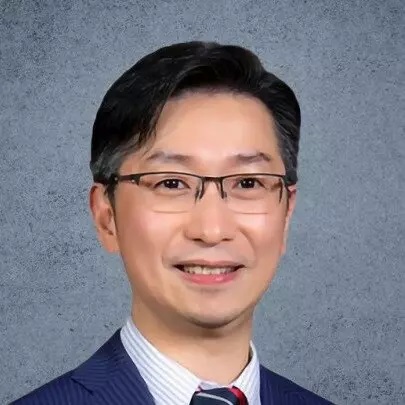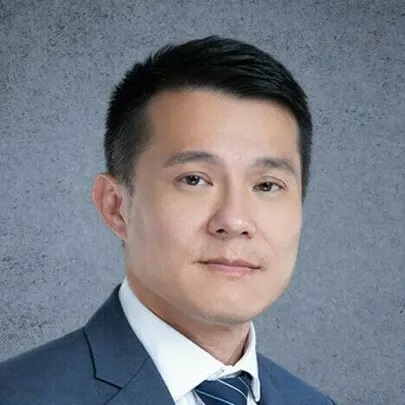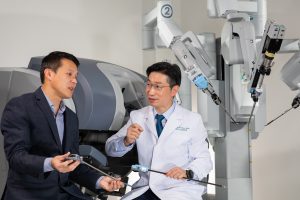Streamlining surgical robot development
Streamlining surgical robot development
Surgical robots are the future of healthcare. However, the delicate and critically important nature of the work they do means they require a lengthy process of trialling and modification. Professor Philip Chiu, a surgeon himself, and Professor Samuel Au, a mechanical engineer, saw an opportunity to streamline that process. In 2017, they proposed setting up a pre-clinical research base in Hong Kong that serves as a one-stop robotic platform, integrating research and clinical work. It develops surgical robotics for clinical purposes, but it also provides pre-clinical data and medical evaluation that make it far easier to get novel surgical robots to market.
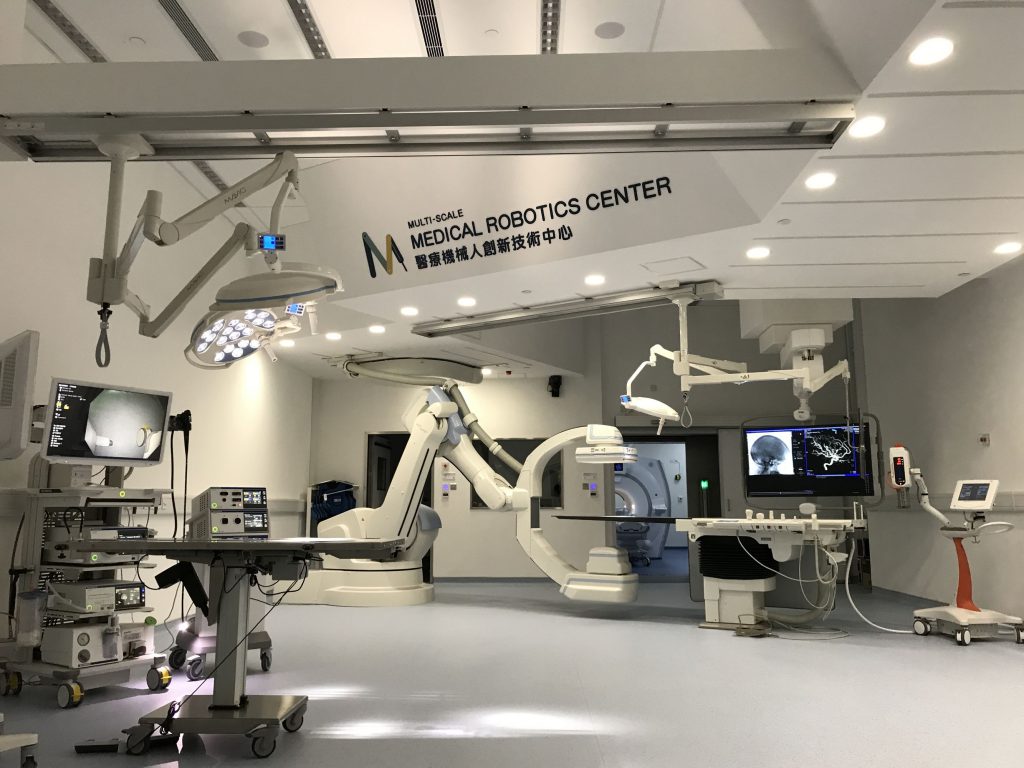
The hybrid operating room at the Multi-Scale Medical Robotics Center is fully equipped like a future operating room, with a medical imaging machine, an ultrasound endoscope and a robot-assisted surgical platform.
An easier way to test surgical robots
The Multi-Scale Medical Robotics Center, part of the InnoHK Research Clusters, officially opened in 2020. Equipped with an 8,000-square-foot laboratory which has a simulated operating room and cutting-edge medical devices such as magnetic resonance imaging (MRI) and three-dimensional imaging machines, the centre is the world’s second and Asia’s first one-stop platform for pre-clinical research and development of surgical robots.
Reliability and safety is of the utmost importance to the development of surgical robots and repeated evaluations and modifications are basic requirements. With its positioning to enable translational research and productisation of novel surgical robotic technologies, the laboratory dedicates for animal tests, R&D and pre-clinical evaluations of medical robotics to accelerate the development processes.
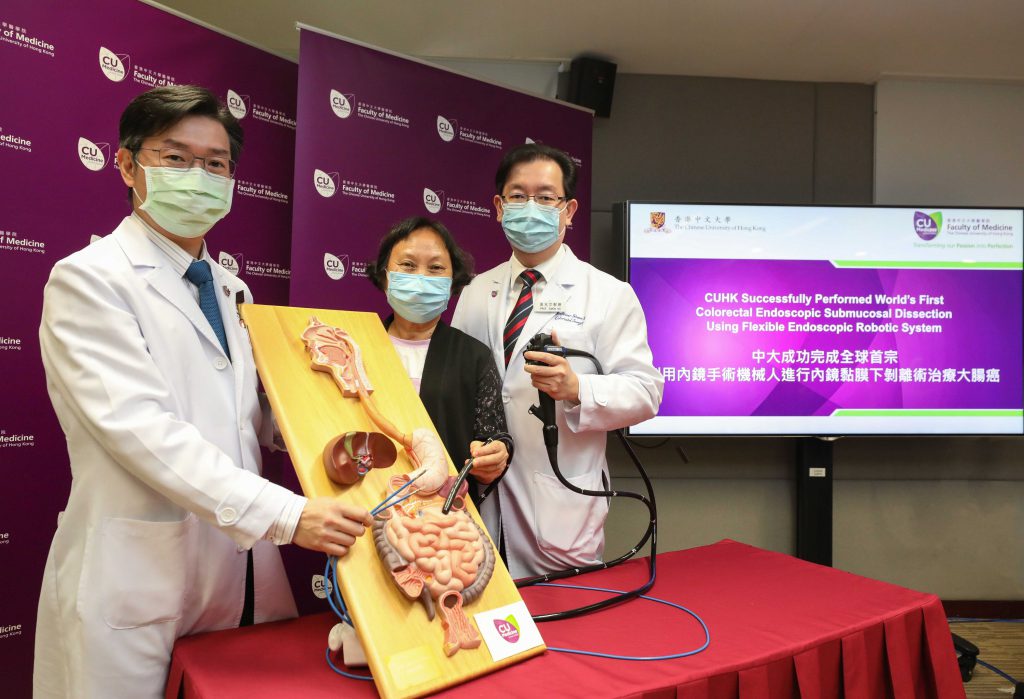
Robotic arms increase the cure rate of diseases, bringing hope to more patients.
Professor Chiu describes the advancement of surgical technology in the past 20 years as “rocket fast”. He believes that robotics is the future of surgery. “There is limitation to what a surgeon can do with a pair of hands. We need specialised tools to assist us. Many talented professionals and startups in Hong Kong, mainland China and Asia are developing medical robots, but constraints caused by hospital facilities, space and manpower put limitations on pre-clinical evaluations.” Professors Chiu and Au therefore decided to set up a base in Hong Kong, providing services that allow medical startups in the region to advance the development and commercialisation of surgical robots.
Professor Chiu explains that first-hand comments from professional users are a crucial part of that. “Doctors have rich clinical experience, and they can tell you what the problems of the existing medical technology are and suggest directions for improvement. Engineers possess the technical expertise to offer technological solutions and fix the issues, and let doctors verify the adjustment. The centre is an ideal platform for all this to happen.”
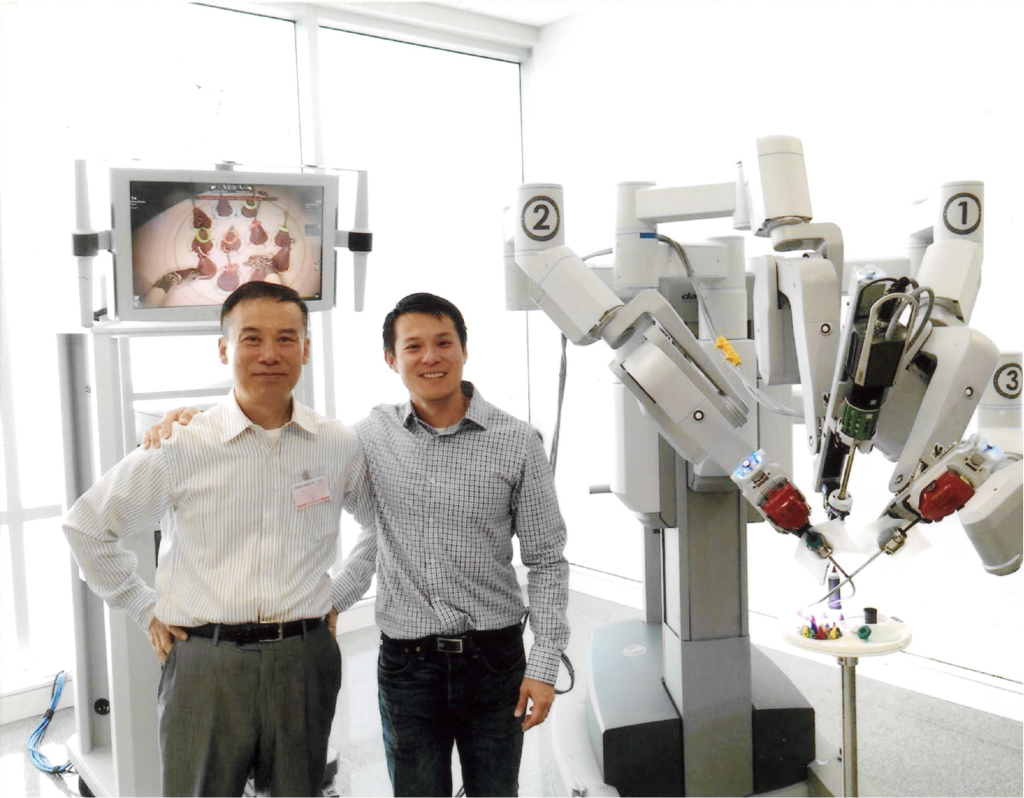
Professor Samuel Au’s enthusiasm for robots originated from a lesson delivered by his MPhil supervisor Professor Xu Yangsheng (left), the incumbent President of CUHK-Shenzhen. Photo shows Professor Au escorting President Xu on a visit to Intuitive Surgical Inc., and showing Xu his “da Vinci robot”.
Engineering and Medicine in perfect harmony
Professor Au recalled the time when he was in the R&D team behind the da Vinci Surgical System. “We invited surgeons to participate in pre-clinical evaluations two to three times on average per week. After collecting their feedback, we had to return to the laboratory to make technical adjustments and modifications for the next trial. This process took many times of back-and-forth and was not easy to coordinate the hospital, the university and the manufacturer.”
“There are more than 100 motors in one robot, requiring the computation of several hundred parameters,” he continued. “In addition to surgeons’ participation, we need collaboration between dozens of experts across different specialities like software, mechanics and interface. A hybrid operation room can provide real-time medical imaging during the R&D and trialling of a surgical robot. The simulated operating environment allows doctors to conduct trials and provides instant feedback. Engineers can adjust the design and parameters on the spot to accelerate development.”
The centre enjoys the advantage of being close to the CUHK campus and its two teaching hospitals, benefiting from all the talented people in those places. In the long run, the centre will serve as a robotics hub for the medical technology industry in the Greater Bay Area and the whole of Asia, providing surgeons and medical professionals with an ideal training platform for surgical robotic technologies and simulation of operations. It will also foster interdisciplinary medical technology research through collaboration with internationally renowned universities and institutes to develop clinically oriented surgical robots.
“The hybrid operating room provides a platform for accelerating the R&D of surgical robots, including the endoluminal multiscale robotic platforms for diagnostics and therapeutics, the magnetic-guided endoluminal robotic platform and the image-guided robotic interventions developed by CUHK teams, enabling the translational research and commercialisation of the technology.”
|
|
Professor Philip Chiu Associate Dean (External Affairs), Faculty of Medicine Professor, Department of Surgery Director, Multi-Scale Medical Robotics Centre Research areas: Minimally Invasive and Endoscopic Robotic Surgery Major achievements:
|
|
|
Professor Samuel Au Associate Professor, Department of Mechanical and Automation Engineering Director, Multi-Scale Medical Robotics Centre Research areas: Medical Robotics Major achievements:
|


